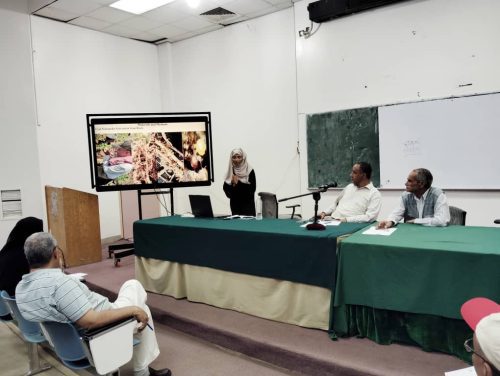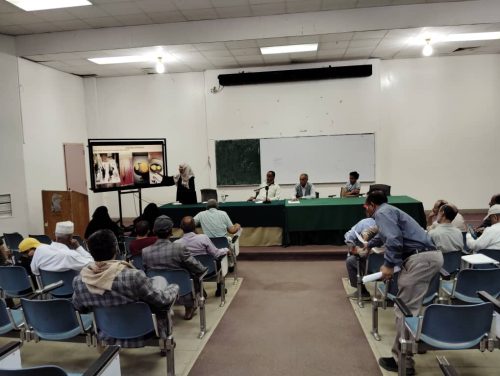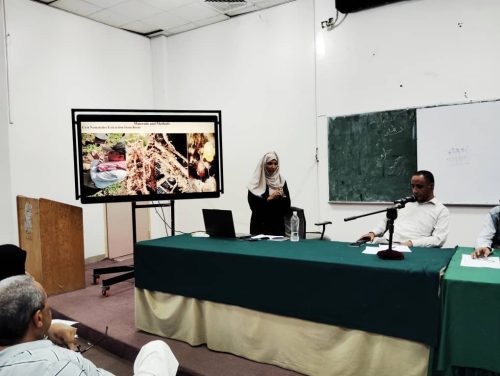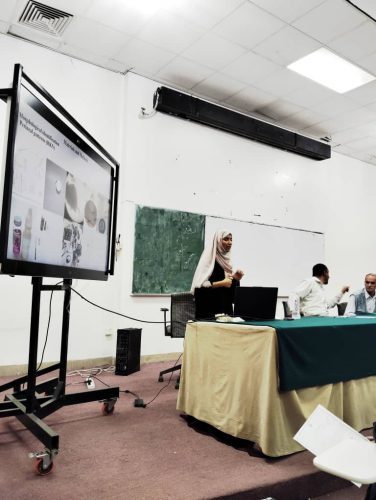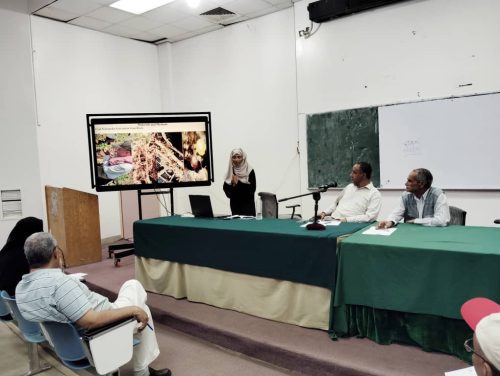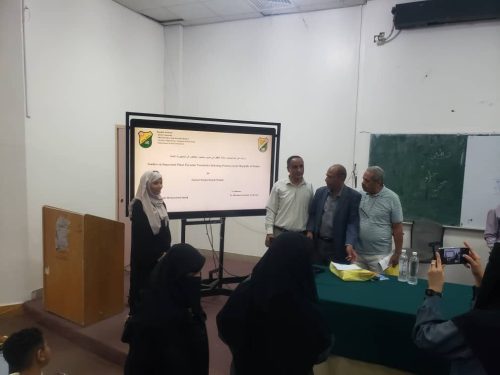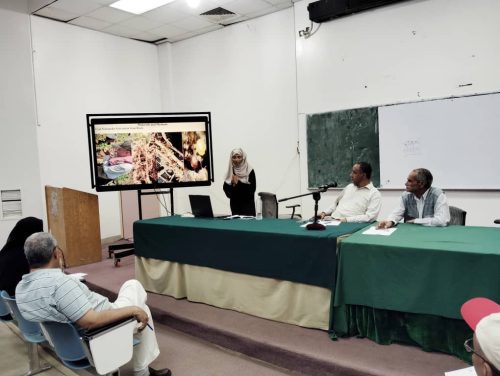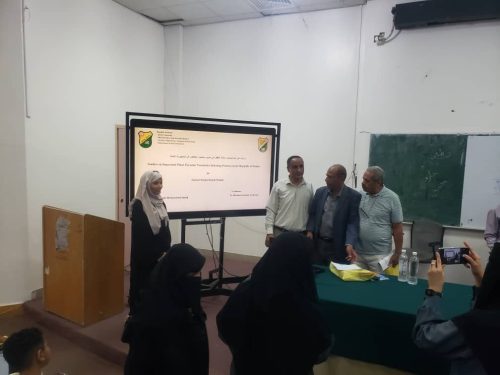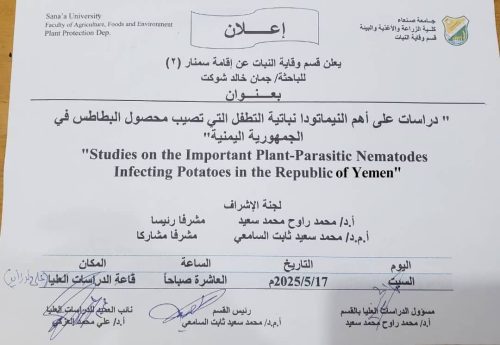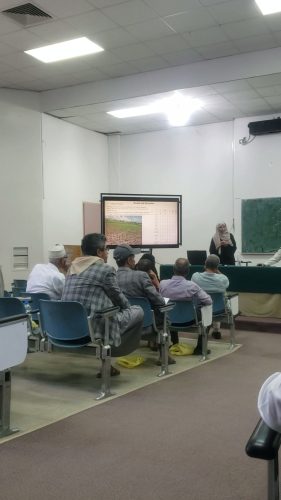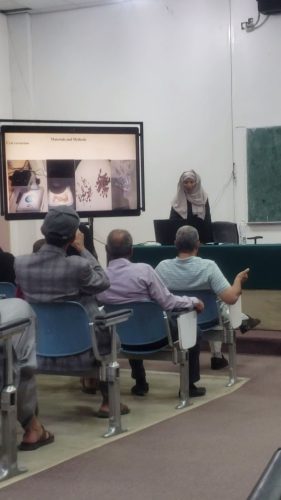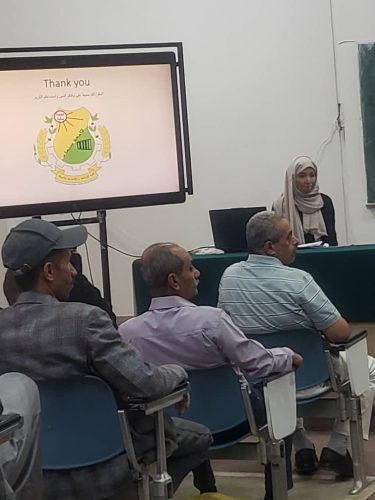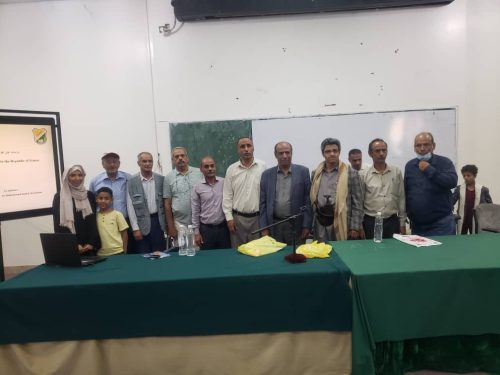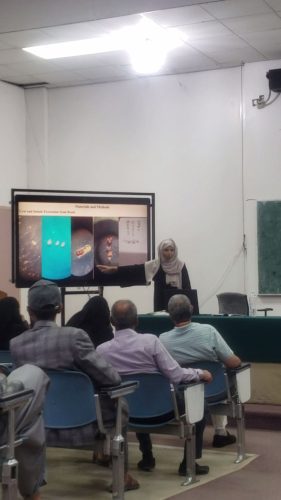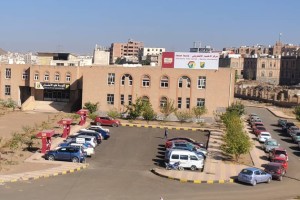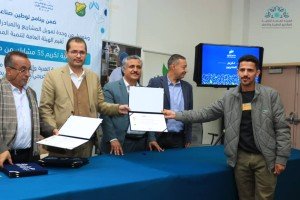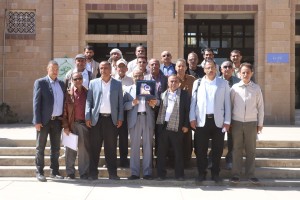Public Seminar (2) Held for MA Thesis Proposal: Ms. Juman Khaled Nashat Shawkat
- Categories news
- Date May 19, 2025
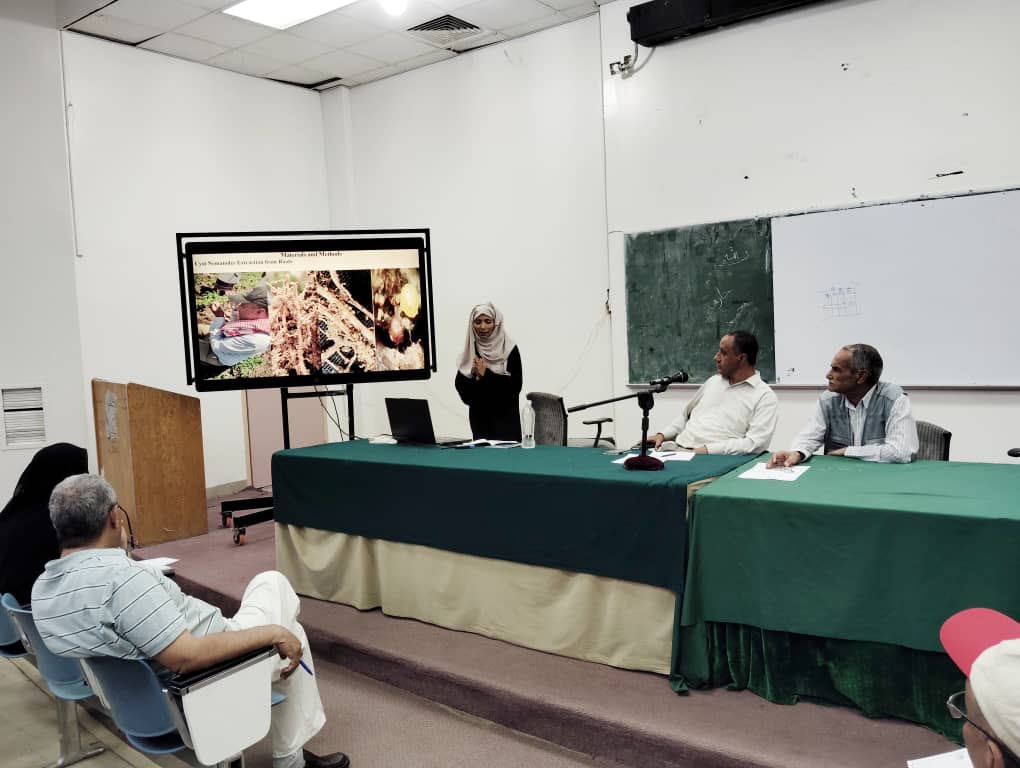
SANA’A, YEMEN – May 17, 2025 – Department of Plant Protection, Faculty of Agriculture, Food and Environment at Sana’a University held Seminar 2 for Ms. Juman Khaled Nashat Shawkat on Saturday, Dhu al-Qa’dah 19, 1446 Hijri, corresponding to May 17, 2025. During the session, Ms. Shawkat delivered a detailed presentation on her Master’s thesis titled:
“Studies on Important Plant-Parasitic Nematodes Infecting Potatoes in the Republic of Yemen”
The thesis is supervised by Professor of Nematology, Dr. Mohammed Raweh Mohammed Saeed.
Ms. Shawkat’s presentation covered the tools and materials utilized in her research, alongside the key findings she has achieved. The presentation also included an explanation of the study’s significance, the research problem, methodology, previous studies, main objectives, and the working methods she employed in conducting her scientific experiments.
Furthermore, Ms. Shawkat presented the results of her field survey conducted in potato cultivation fields across the governorates of Ibb, Dhamar, and Amran. This was complemented by the laboratory examinations and analyses carried out in the laboratories of the Faculty of Agriculture, Food and Environment.
The MA thesis proposal focused on investigating the reasons behind the decline in potato production, which ranks as the fourth most important food crop globally and the first in Yemen. This was achieved through three consecutive field surveys conducted over three agricultural seasons from 2022 to 2023 in the agricultural regions of Ibb, Dhamar, and Amran governorates, representing over 82% of the total potato cultivation area in Yemen.
During the thesis, more than 1248 soil samples were collected from 317 fields belonging to 205 farmers, in addition to plant samples from the fields and storage facilities.
The analysis and various examinations revealed the presence of 19 genera of plant-parasitic nematodes associated with potatoes. Notably, the potato cyst nematode Globodera, considered one of the most dangerous genera threatening potato cultivation worldwide and previously unrecorded in Yemen, was identified. The root-knot nematode Meloidogyne, a significant pest affecting potatoes in many countries globally, was also found.
The results further illustrated the distribution of these pests in different regions, along with an estimation of their population densities. Two species of potato cyst nematodes were identified: Globodera pallida and G. rostochiensis, in addition to five species of root-knot nematodes: M. incognita, M. chitwoodi, M. hapla, M. javanica, and M. arenaria. The prevalence of these species in the surveyed governorates was also determined.
The study’s findings also revealed the losses resulting from the presence of potato cyst nematodes in different areas. Significant losses in potato yield were observed, with the highest average loss recorded in the Al-Manzel Al-Qadeem area of Qa’a Al-Haqel in Yarim, amounting to 26.2 tons per hectare. The high density of this pest in several fields also led to the failure of potato cultivation in those areas. Dhamar Governorate ranked second in terms of loss percentage, while Amran Governorate was the least affected.
Following the presentation, members of the committee and attendees engaged in a detailed scientific discussion of the researcher’s findings, providing their observations and necessary recommendations.
This session (Seminar 2) is a fundamental requirement for the researcher to obtain departmental approval on the study’s results before proceeding to the final thesis defense, during which the defense and judgment committee will be formed.
The session was attended by the Head and faculty members of the department, along with the integrity committee, several faculty members from other departments, and postgraduate students, in an interactive academic atmosphere characterized by academic enrichment and constructive discussions.
